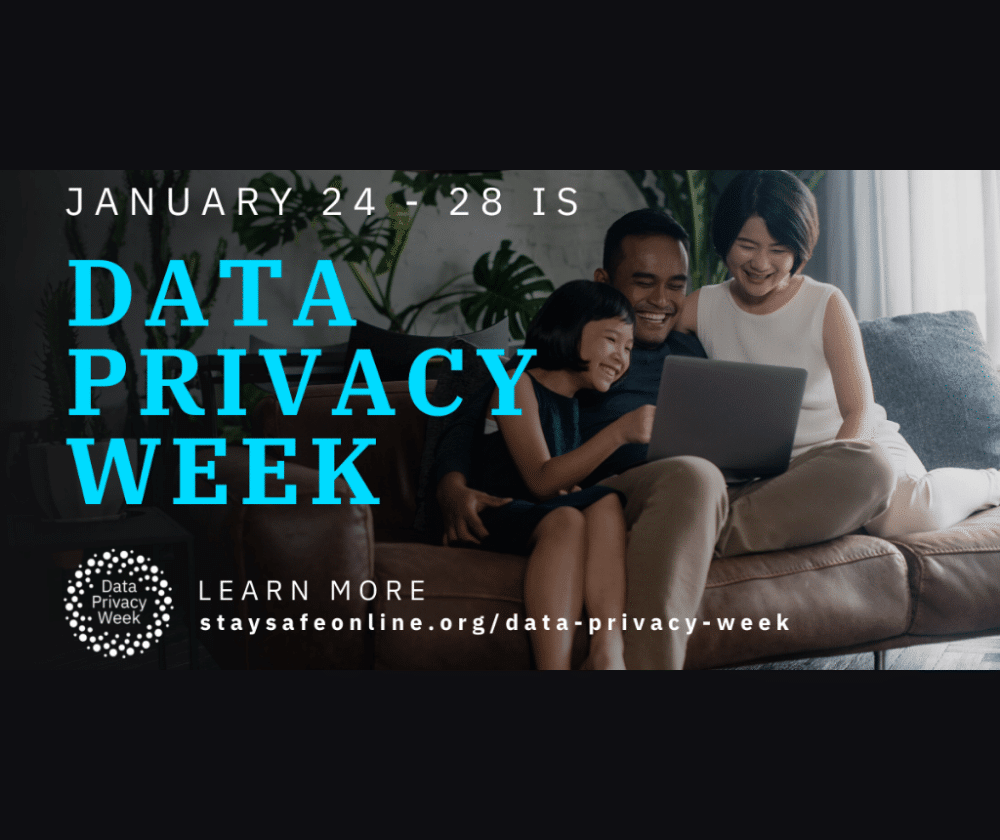Data Privacy Week Is Almost Here! Learn How Individuals and Organizations Can Protect Privacy

Monday marks the beginning of Data Privacy Week! Led by the National Cybersecurity Alliance, the goal of this week is to educate and empower both individuals and organizations to respect privacy and protect data. BARR is proud to be recognized as a Data Privacy Week Champion this year for our commitment to online safety practices.
Data Privacy Week Champions are organizations dedicated to advocating for individual and consumer privacy and encouraging other organizations to take actions to safeguard data.
What is data privacy?
At BARR, we talk a lot about data security—that’s our jam. While closely related, data privacy is different from data security, even though the two are often used interchangeably.
Data privacy refers to the way personal data is collected, processed, stored, and used, with private data only accessible to authorized users.
Data security is the practice of protecting data from unauthorized access and malicious threats, and therefore helping to ensure data privacy. For example, threat monitoring, access control, and encryption are all security measures that keep private data out of the hands of unauthorized users.
Data privacy is an important issue to both individuals and organizations. People have a right to privacy, and there can be serious consequences when private information falls into the hands of malicious actors. When hackers gain access to an individual’s personal information, they can wreak havoc, potentially committing insurance fraud, identity theft, or financial theft. Not only does this impact the individual, but the organization that failed to protect consumer data can be held accountable.
What can individuals do to protect their privacy online?
“Privacy goes hand-in-hand with security,” said Matt Schuster, senior consultant with BARR’s cyber risk advisory practice. “Implementing strong security practices will help to mitigate your privacy risk.”
According to Schuster, some of the best practices for an individual to take to protect their privacy include:
- Implementing multi-factor authentication whenever possible
- Using complicated passwords
- Updating software and devices regularly
- Checking your privacy settings on social media
There are a lot of tools available that make it easier for consumers to implement some of these practices, such as password managers like LastPass or Dashlane. The National Cybersecurity Alliance‘s Manage Your Privacy Settings page is another great tool that helps individuals control who has access to their personal information across a number of different platforms.
What can organizations do to respect consumer data?
For organizations, respecting consumer privacy is both the right thing to do and a strong business strategy. It’s important to keep an open line of communication between you and your customers.
“When you let your consumers know what data you’re collecting, why you’re collecting it, and how you’re keeping it safely stored, you build a level of customer trust, which is great for your business overall,” Schuster explained.
As for other steps to take towards respecting consumer privacy, organizations can conduct an assessment of their data collection practices and adopt a framework that will help manage their privacy risk. This is when having a trusted cybersecurity partner and advisor like BARR can really come in handy.
Lastly, organizations should create a culture of privacy internally, including effectively educating their employees on privacy policies and security best practices.
As a Data Privacy Week Champion, we will continue to share tips, best practices, and education resources on social media throughout the week to educate users on the best privacy practices. Follow along with us on Facebook, Twitter, and LinkedIn.
In addition, we want to help you and your family, friends, and community be safer online. We encourage you to become a Champion. Champions represent those dedicated to empowering individuals and businesses to better manage privacy and protect data. After signing up, you’ll receive a toolkit of free resources, including easy tips you can implement at home.
Want to learn more about the best practices to implement to respect consumer privacy? Contact us today.
For more information about Data Privacy Week, visit https://staysafeonline.org/data-privacy-week/.